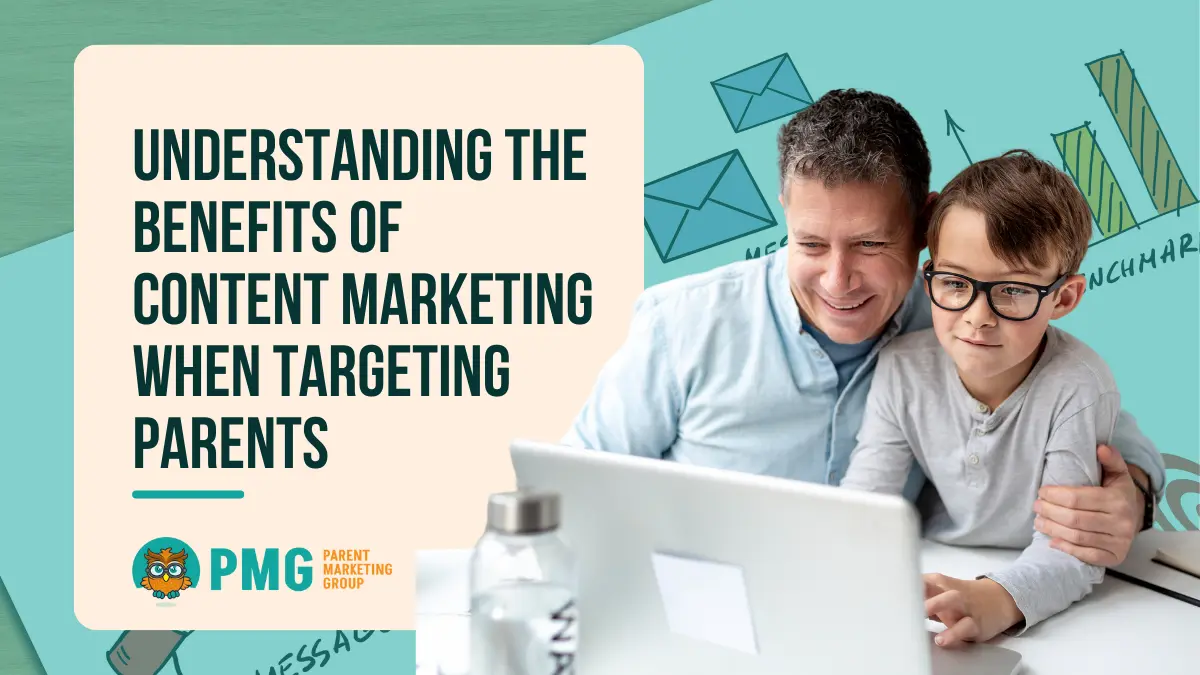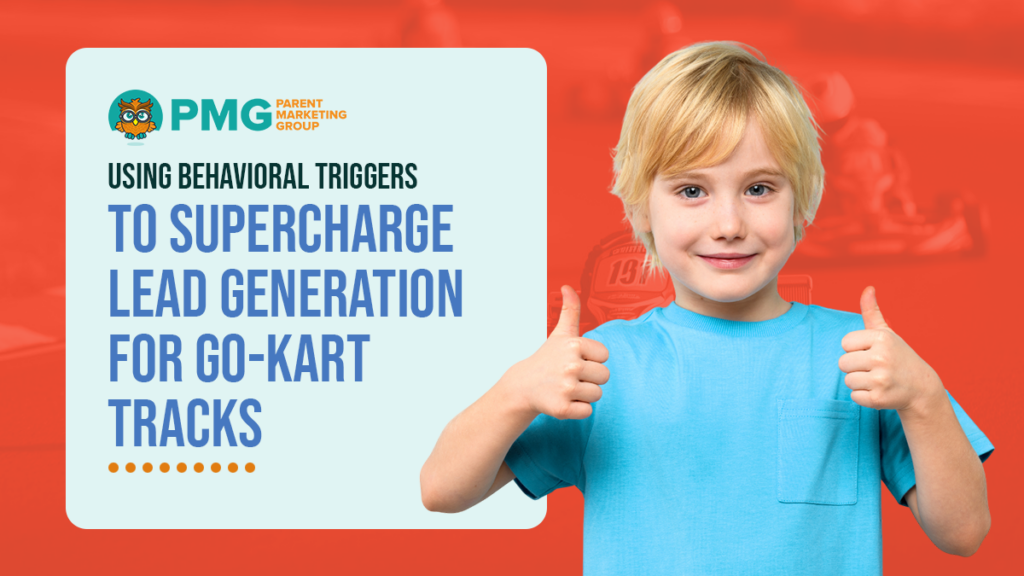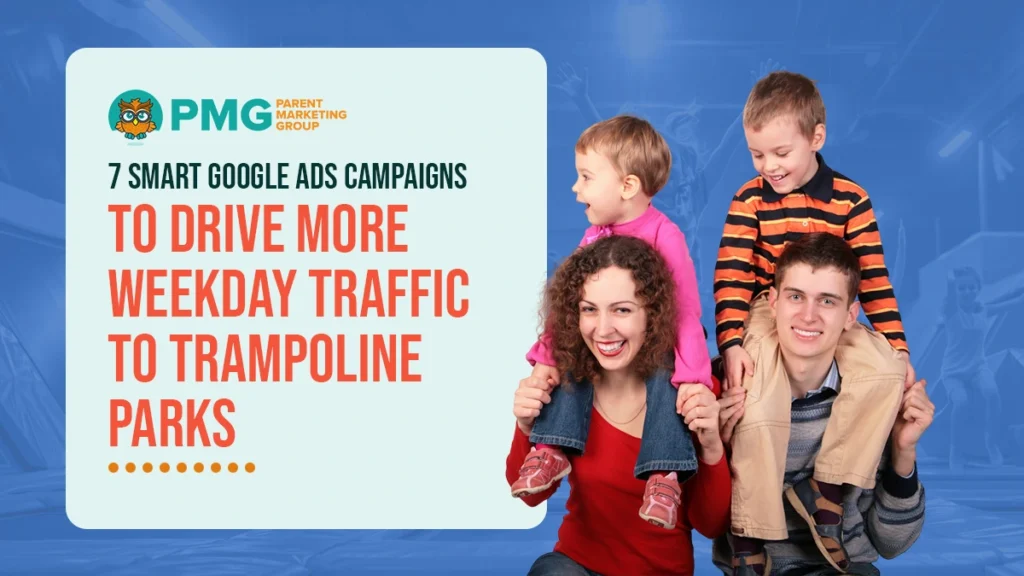The benefits of content marketing spread far beyond just generating leads—it’s about building trust, fostering connections, and delivering value. When targeting parents, content marketing becomes even more powerful, as it allows businesses to address families’ unique challenges and needs authentically and relatable. By crafting tailored, meaningful content, brands can establish themselves as trusted resources within the parenting community.
Whether it’s sharing parenting tips, offering solutions to everyday challenges, or highlighting how your products or services align with their values, content marketing helps create lasting relationships. This approach isn’t just about driving sales—it’s about fostering a sense of belonging and understanding. Let’s explore how thoughtful content marketing strategies can create meaningful connections with parents and elevate your brand’s presence in their world.
The Role of Content Marketing and Digital Marketing in Connecting with Parents

Connecting with parents requires more than just promoting a product or service—it demands understanding their values, challenges, and needs. Content marketing and digital marketing provide the perfect avenues for businesses to engage with this audience authentically and meaningfully. By combining compelling storytelling with strategic online approaches, brands can impact parents looking for solutions that align with their family’s priorities.
Understanding Parents as a Target Audience
Parents often juggle multiple responsibilities, from work to childcare to household activities. This makes them a unique audience with specific needs. They value:
- Trust: Brands that genuinely understand their challenges and offer reliable solutions.
- Convenience: Products and services that save time or make their lives easier.
- Connection: Content that speaks to their experiences and values.
By considering these priorities, businesses can create content and digital strategies that resonate with parents more deeply.
Why Content Marketing is Effective for Parents
Content marketing allows brands to meet parents where they are, providing them with valuable resources and information. Instead of a hard-sell approach, it’s about building relationships through helpful, engaging, and relevant content. For instance:
- Parenting Tips: Blogs, videos, or social media posts offering advice on common parenting challenges.
- Educational Resources: Guides, eBooks, or infographics on child development, health, or education.
- Product Demonstrations: Videos or tutorials showcasing how a product can simplify parenting tasks.
This type of content places your brand as a trusted resource and keeps parents returning for more, fostering brand loyalty over time.
How Digital Marketing Amplifies Content Efforts
While content marketing creates value, digital marketing ensures that content reaches the right audience at the right time. Parents, especially millennials and Gen Z, spend significant time online, whether scrolling through social media, searching for solutions, or reading blogs. Effective digital marketing strategies for targeting parents include:
- Social Media Marketing: Instagram and Facebook are hotspots for parents. Posting relatable and shareable content, such as parenting memes or heartwarming stories, can drive engagement.
- Email Campaigns: Personalized newsletters that provide exclusive tips, updates, and special offers.
- Search Engine Optimization (SEO): Ensure your content appears in search results when parents actively seek solutions.
Examples of Connecting with Parents Through Content and Digital Marketing
Brands that effectively combine content marketing and digital marketing can achieve remarkable results. For example:
- A baby product brand sharing relatable parenting stories on Instagram, accompanied by helpful product tutorials.
- An education company offering free downloadable worksheets for kids promoted through targeted social media ads.
- A family-focused app providing engaging blog posts about managing screen time paired with SEO-driven search campaigns.
By leveraging the perks of content and digital marketing, businesses can create an authentic and impactful connection with parents, ensuring their brand becomes a trusted part of their parenting journey.
Building Trust with Strategic Marketing Campaigns

Trust is not just important when marketing to parents—it’s essential. Parents are cautious decision-makers who want to ensure they choose the best for their families. Strategic marketing campaigns that emphasize authenticity, transparency, and value are the key to building lasting relationships with this audience. By crafting campaigns that resonate with parents’ needs and values, businesses can position themselves as trusted allies in their parenting journey.
Why Trust Matters to Parents
Parents rely on trustworthy brands to provide solutions that genuinely support their family’s well-being. Trust influences not just buying decisions but also long-term loyalty. Key factors that parents look for include:
- Honesty: Clear and straightforward communication about products and services.
- Relevance: Solutions tailored to their specific challenges.
- Reliability: Consistent quality and dependable customer service.
Failing to build trust can result in skepticism, which can cause parents to seek alternatives. Strategic marketing campaigns address this by creating genuine connections.
The Role of Strategic Campaigns in Establishing Credibility
Strategic marketing campaigns allow businesses to establish themselves as credible and reliable. These campaigns should focus on:
- Highlighting Expertise: Showcase your knowledge through educational content, such as blogs, videos, and webinars. For instance, a childcare center might share tips on early childhood development to position itself as an expert.
- Sharing Success Stories: Use testimonials, case studies, and reviews to demonstrate how your brand has positively impacted families. Parents trust the experiences of others, making social proof a powerful tool.
- Being Transparent: Communicate what your brand offers and why it’s valuable. Avoid exaggerations or vague claims, as parents value honesty above all else.
Elements of a Trustworthy Campaign
Strategic marketing campaigns designed to build trust with parents often include these elements:
- Storytelling: Parents connect with real stories that reflect their own experiences. A heartfelt story about how a product or service solved a problem for another parent can be more compelling than any sales pitch.
- Visuals and Testimonials: Include photos or videos of real families using your products or services. Authentic visuals reinforce trust by showing your brand in action.
- Personalized Messaging: Segment your audience to address parents’ specific needs. For example, new parents may prioritize safety and convenience, while parents of older children might value educational tools.
Examples of Trust-Building Campaigns
Some of the most successful campaigns are those that prioritize trust. For example:
- A health-focused food brand running a campaign highlighting its natural ingredients and offering a behind-the-scenes look at its production process.
- A children’s toy company sharing real-life testimonials from parents about how their products promote creativity and learning.
- An online education platform hosting free webinars to support parents in guiding their children’s academic growth.
Businesses can create meaningful connections with parents by building trust through strategic marketing campaigns. Trust doesn’t just drive purchases—it fosters loyalty, ensuring that parents turn to your brand repeatedly for solutions they can rely on.
Driving Engagement Through Tailored Content Marketing Solutions

When targeting parents, one-size-fits-all marketing approaches don’t work. Parents have diverse needs, challenges, and preferences, making it essential for brands to provide tailored content marketing solutions that resonate with their unique circumstances. Personalized and relevant content helps businesses connect with parents more effectively, driving higher engagement and fostering long-term relationships.
Why Tailored Content Matters to Parents
Parents are constantly seeking information and solutions that make their lives easier. Generic marketing messages, however, often fall flat. By tailoring content to address specific parenting challenges, businesses can:
- Demonstrate Understanding: Show parents that you truly grasp their needs and concerns.
- Build Trust: Providing personalized value fosters trust and loyalty.
- Enhance Engagement: Relevant content encourages parents to interact with your brand, whether by sharing, commenting, or purchasing.
For example, a blog post about preparing healthy meals for toddlers will resonate more with parents of young children than a generic article about family nutrition.
Creating Effective Tailored Content
It’s important to focus on personalization, relevance, and timing to create impactful content marketing solutions. Key strategies include:
- Segmenting Your Audience: Separate your audience into segments based on factors like the age of their children, parenting style, or geographic location. This allows you to create highly specific content for each group.
- Addressing Pain Points: Identify the common challenges parents face and craft content that offers practical solutions. For instance:
- Tips for balancing work and parenting.
- Guides to managing screen time for kids.
- Activities for keeping children engaged during school breaks.
- Leveraging Data and Feedback: Use analytics tools and customer feedback to comprehend what types of content perform best and refine your approach accordingly.
Types of Tailored Content That Engage Parents
Different content formats appeal to parents depending on their preferences and the challenges they’re addressing. Examples include:
- Blogs and Articles: In-depth guides or tips tailored to specific parenting challenges, such as “How to Help Your Child Sleep Through the Night.”
- Videos: Quick, engaging tutorials or relatable parenting scenarios, like “5 Easy Lunchbox Ideas for Busy Mornings.”
- Infographics: Visual content that simplifies complex topics, such as “A Day in the Life of a Toddler.”
- Social Media Posts: Short, relatable posts or memes that connect with parents’ everyday experiences.
Real-World Examples of Tailored Marketing Solutions
Successful brands have mastered tailoring their content to parents’ needs. For example:
- A subscription box company for kids offering personalized recommendations based on a child’s age and interests.
- An educational app sending targeted emails to parents with tips on helping children succeed academically.
- A toy brand creating video campaigns featuring parents sharing how the toys encourage creativity and learning.
Businesses can effectively engage parents and create meaningful connections by crafting tailored content marketing solutions. The more relevant the content, the more likely parents will see your brand as an essential part of their journey. This approach doesn’t just drive engagement—it helps build a loyal community around your brand.
Conclusion
Content marketing is one of the finest tools for connecting with parents, fostering trust, and building lasting relationships. Businesses can position themselves as excellent partners in the parenting journey by understanding their unique needs, creating strategic campaigns, and delivering tailored solutions. From meaningful storytelling to personalized strategies, content marketing offers endless opportunities to engage, inspire, and make a difference in families’ lives.
Ready to increase your marketing strategy and connect with parents like never before? Let Parent Marketing Group help you craft campaigns that deliver results and foster genuine connections. Visit https://parentmarketing.com/contact-us or call us at (706) 899-3707 to get started today!







